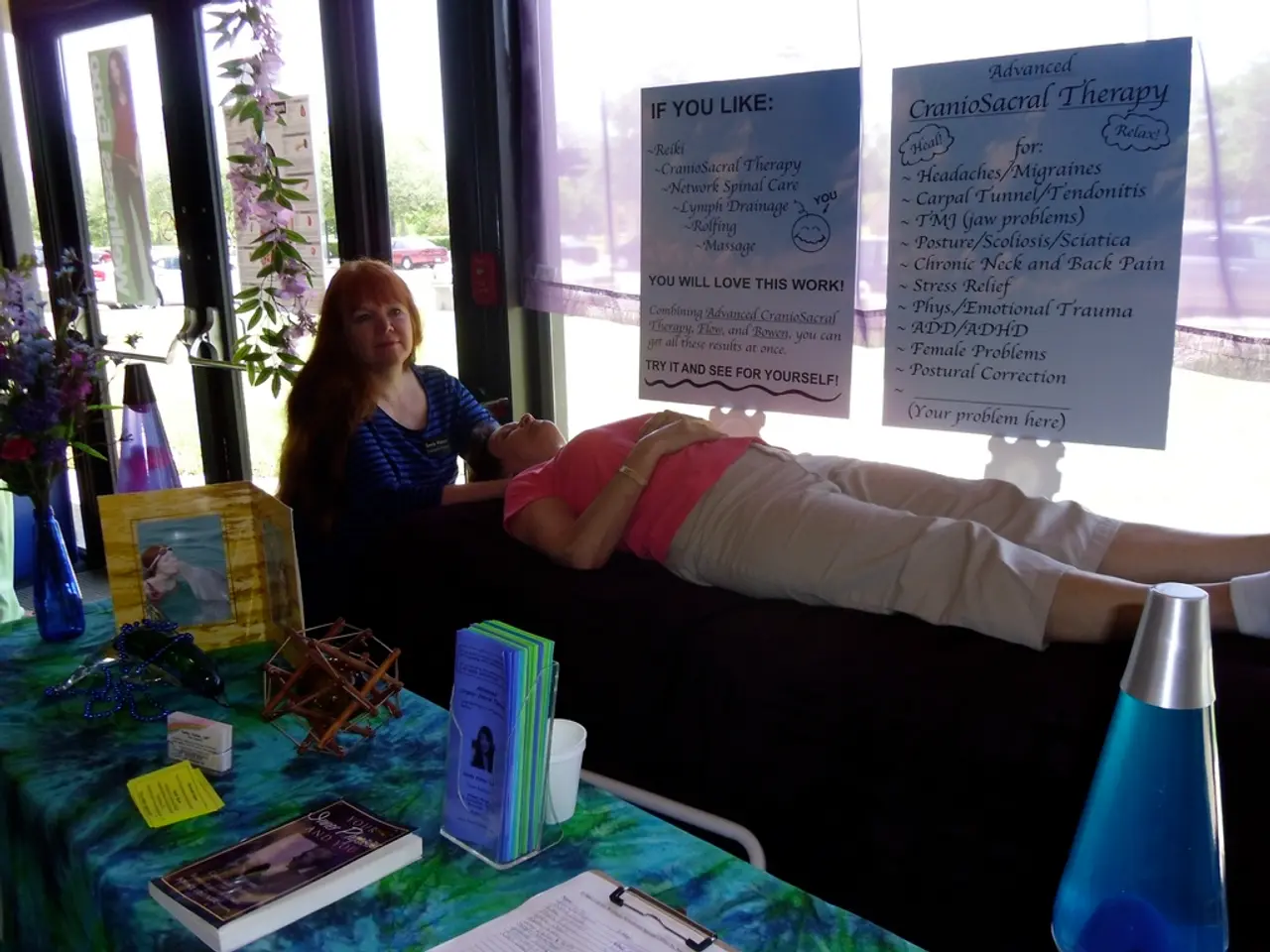Navigating the Time Gaps Between Counseling Appointments
In the realm of emotional well-being, therapy plays a pivotal role. Here are some strategies to make the most of your therapy sessions and enhance the overall experience.
Firstly, taking a few minutes after each therapy session to reflect can help you make sense of what you're feeling and discover how to get the most out of therapy. This reflection can be jotted down in a journal, providing a space to explore thoughts and feelings, track progress, and spot trends.
Limiting alcohol or other substances that can affect your mood is a healthy habit that can support emotional well-being. Alongside this, maintaining a balanced diet with nutritious meals throughout the day is also beneficial.
Healing takes time, and it's normal to have ups and downs during the process. It's important to develop self-compassion, be kind to oneself, and have patience during therapy progress as it takes time for behaviors, attitudes, and feelings to change.
Getting some exercise, even with just a short walk to stretch, is a healthy habit that can support emotional well-being. Making time to unplug from screens and rest, especially before bed, is another healthy habit that can aid emotional well-being.
Writing down thoughts and emotions after a therapy session can help process lingering feelings. This practice can be supplemented by a consistent self-care routine, which includes ensuring enough sleep, eating regular meals, moving the body, spending time outside, seeing loved ones, and making time to rest.
Self-care is a vital part of the emotional work done in therapy. A consistent self-care routine can help you feel more stable and supported as you work through challenging emotions.
Exploring resources such as books, articles, guided meditation apps, mental health podcasts, online support communities, and educational videos can complement your therapy work. Setting small, achievable goals is a powerful way to help you stay focused and motivated between therapy sessions.
Keeping a regular sleep schedule is another healthy habit that can support emotional well-being. Some meaningful tips for staying connected to therapy goals and progress between sessions include maintaining regular reflection on your experiences, tracking your progress, and preparing focused notes to share with your therapist.
Technology-assisted tools, like Grow Therapy’s Between-Session Reflections, can help summarise this information efficiently and foster a habit of reflection that supports the therapeutic relationship.
Reaching out for support from trusted friends and family between sessions can help you feel less alone. Regularly tracking moods can help notice patterns, recognise triggers, and feel more in control of emotional health.
Lastly, understanding your therapist’s approach, session structure, and expected timeline helps set realistic expectations and maintain motivation throughout the therapeutic journey. Collaborative note review, where therapists review notes with you at the end of sessions, can validate your experience and support accurate documentation of your goals and progress.
By incorporating these strategies into your therapy journey, you can foster a more effective and personalised treatment experience.
Read also:
- Exploring Botox as a Treatment for Interstitial Cystitis: Insights, Adverse Effects, and Further Details
- Linking brain weakness and cognitive decline: An examination of the potential relationship
- The Powerful Evidence behind the Enchantment of Kindness: 18 Insights Revealed
- Indications of Tinnitus Recession and Possible Causes





